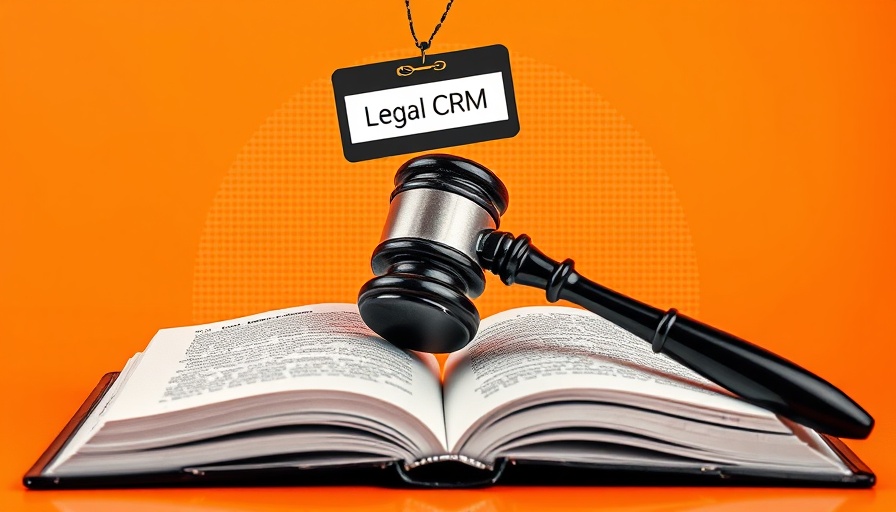
Understanding the Importance of CRM in Legal Practice
In the rapidly evolving landscape of legal services, managing client relationships has never been more critical. Legal practices face unique challenges, including stringent confidentiality requirements and complex regulatory compliance. This is where Customer Relationship Management (CRM) software tailored for the legal sector comes into focus. By centralizing communications and automating essential processes, CRMs not only enhance efficiency but also streamline workflows, providing law firms the tools they need to thrive.
Top CRMs for Legal Professionals in 2025
For 2025, several CRMs have emerged as leaders in catering to the specific needs of legal businesses. These platforms provide robust functionalities designed to address common pain points in legal management:
Key Features that Enhance Legal CRM Utility
1. Client Tracking: Effective CRMs allow law firms to track interactions while maintaining lawyer-client privilege. This ensures that sensitive data remains protected, fundamental in a legal setting.
2. Workflow Automation: Automating client intake processes can save valuable time and improve the accuracy of client onboarding. Legal CRMs often include features that help convert leads into well-vetted clients seamlessly.
3. Compliance Management: With built-in tools for managing consent and audit trails, legal CRMs ensure firms remain compliant with legal advertising regulations, reducing the risk of potential ethical violations.
Choosing the Right CRM: A Step-by-Step Guide
When selecting a CRM, consider the specific needs of your legal practice. Look for systems that offer comprehensive support, easy integration with existing tools, and a user-friendly interface to facilitate quick adoption.
Conclusion: Investing in the Right CRM
As we look into the future of law and technology, understanding the potential of CRM systems in shaping efficient legal practices is crucial. By leveraging the right tools, law firms can enhance their client service offerings, streamline operations, and ultimately drive growth. For legal professionals, the choice of a CRM is not just about technology, but a vital step towards a more productive and effective practice.
 Add Row
Add Row  Add
Add 




Write A Comment